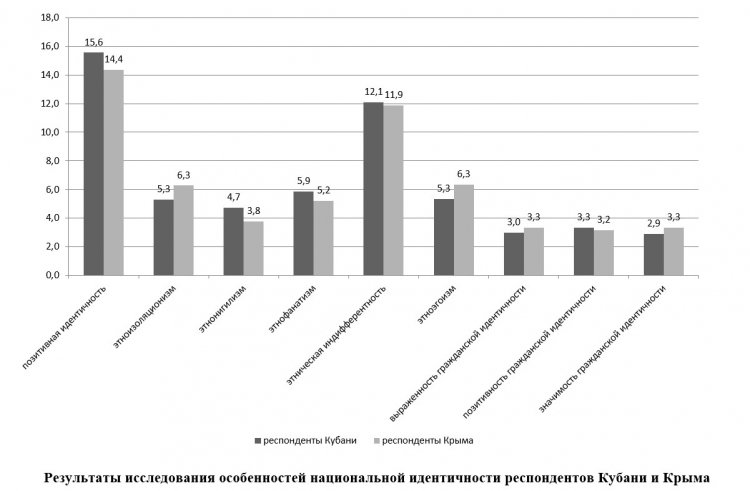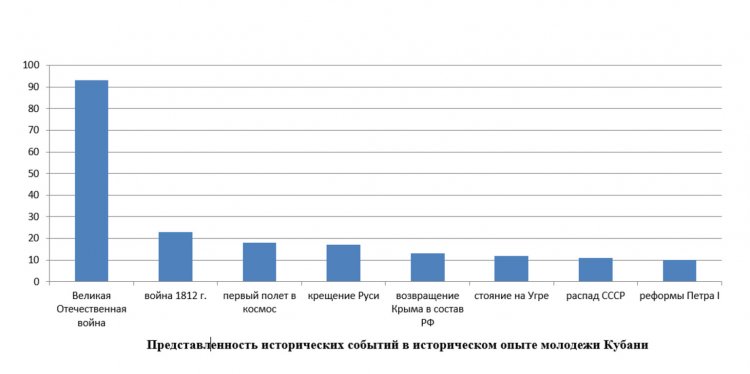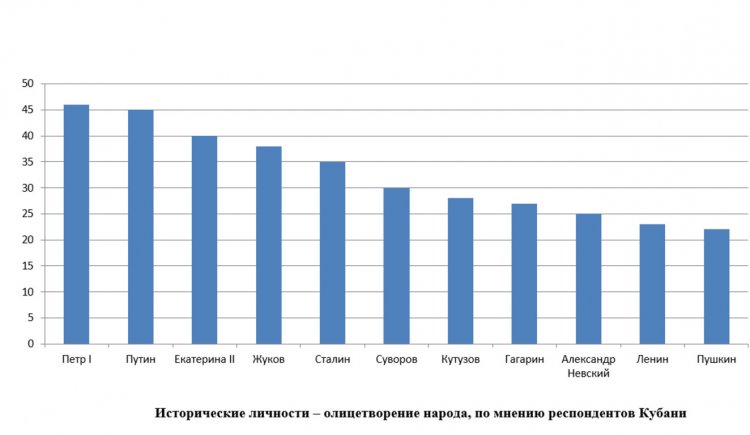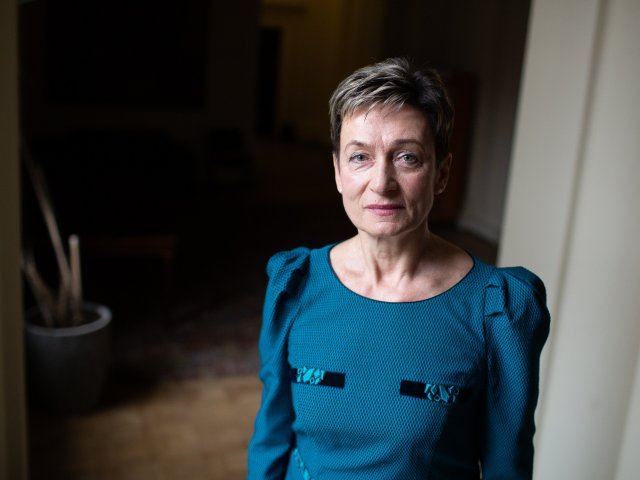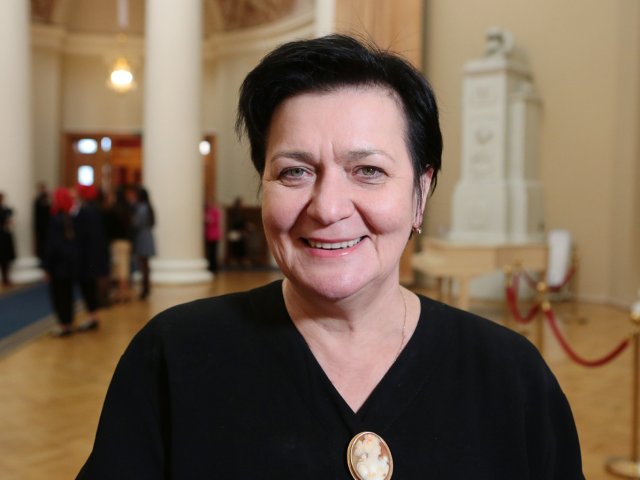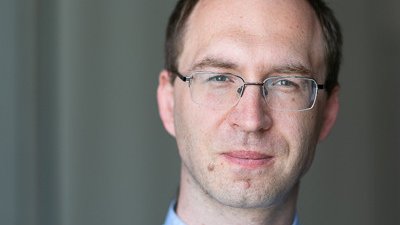Kuban scientists are engaged in the study of value orientations, social attitudes, and identities of the younger generation in the era of digitalization and globalization
To determine the resource potential of the state, it is necessary to follow the dynamics of the value transformation of the individual. As a rule, the standards are dictated by time change, but the main categories act as a permanent basis for the formation of a person: family, health, profession, career, the financial situation. The factor of the ideological and spiritual state of society is based, among other things, on the social values and attitudes of the younger generation, which is why it is important to investigate the existing mechanisms of formation and features of expression of their worldview stances about themselves and the world around them, behavior patterns and interpersonal interaction in given circumstances.
Specialists of Kuban State Technological University (Krasnodar) research the formation of the choice of values, moral norms, ideas of young people about the future, and their orientation to further life. Scientists research how the ongoing social world processes affect the features of interaction and expression of national, regional, socio-cultural, and professional identity of young people
Oksana Roaldovna Tuchina – Doctor of Psychological Sciences, Professor at the Department of History, Philosophy and Psychology of Kuban State Technological University (KubSTU, Krasnodar) – spoke about the empirical studies that reveal the behavior of a modern person in the normative-value space of community; namely, how the younger generation look at different kinds of identity and what is the idea of the individual future of today’s youth in the era of digitalization and globalization (on the example of Kuban schoolchildren and students).
“Our research has a long tradition: we have been studying the problems of the value aspect of youth since 2006, and during this time a lot of empirical material has accumulated to trace a certain dynamic of formation. We started the study of values in the context of the study of self-understanding of ethnocultural identity. Krasnodar Krai is a multiethnic region, and the problem of multicultural interaction and dialogue has always been very acute. There were periods of mass migration from the countries of the former Soviet Union, and then from the Caucasian republics, and our region has always been at the crossroads of cultures and civilizations, and therefore the topic was very important for us. We studied this problem in the context of tolerance and tolerant attitude towards immigrants, in the context of how different cultures can interact within the framework of one civic identity, one culture, region, country. Gradually, this topic has shown new vectors of research – civil, regional, professional identity, especially considering migration, in particular intra-Russian, over the past 5-6 years,” Oksana Tuchina outlined the key aspects of the scientific work of the KubSTU team.
Kuban specialists carry out a wide range of research. For example, recently scientists have been interested in the problem of culture in the broad sense of the word and its impact on communities, on the generational values and their transmission.
“We study the phenomenon of a person of culture, that is, the sample that representatives of a certain generation of a certain region consider to be their own, and we try to compare and find value dominants or features for different communities. For example, last year within the framework of the Ministry of Education of the Russian Federation’s task “Formation of motivation for learning Russian among foreign youth through the actualization of historical ties with Russia in cultural and professional fields,” dedicated to the popularization of the Russian language, we conducted a study of such value differences and dominants among the younger generation in Russia, Armenia, Kyrgyzstan and Kazakhstan, and very interesting results were obtained as a result: the image of a “man of culture,” which is considered a model, reflects the main cultural trend characteristic of the community at a particular historical moment: what worries a person most of all, what hopes for a positive future of their people are associated with. So, for the Armenian respondents it is the image of the defender of the nation, for the respondents of Kazakhstan – the image of the educator, for Kyrgyzstan – the creator, the creator, for Russia – the leader,” Oksana Tuchina said.
Within the framework of the Laboratory of Sociocultural Research of Kuban State Technological University, headed by Professor Oksana Tuchina, together with the Centre for Sociocultural Research of the Higher School of Economics (Moscow), under the leadership of Doctor of Psychological Sciences, Professor Nadezhda Lebedeva, Mirror Laboratory collaboration project was created – a global project which is dedicated to the study of transmission and dynamics of values in the Central Federal District and the Krasnodar Territory and provides for the study of several areas.
“We are conducting a cross-regional analysis. Our goal is to find out how values change from generation to generation, how it happens in the context of civil, regional, ethnic, religious identity, and how it all correlates with the peculiarities of interethnic relations. Moscow gathers representatives from all over the world. And we have a very powerful diasporic aspect, for example, we have been studying the Armenian Diaspora for many years,” Professor Tuchina said.
In addition, the study of Kuban specialists continues within the framework of the “Representation of adolescents and youth about the future in conditions of uncertainty” project under the RFBR Mentor grant. The objective is to find out how the young generation’s view of the future changes in connection with the COVID situation, and to form promising research teams and research skills among KubSTU students.
“Short-term and long-term planning is becoming problematic now. Some people have always had everything carefully planned out and now they don’t know how to live. There is even a concept of “covid neurosis.” The situation is different for young people: this situation affects their goal setting. It is difficult to formulate the prospect of the distant future, to model your life because the situation may change. They do not know how the labor market will change and whether their chosen profession will be in demand. The situation affects the mental state (a person does not want and cannot plan their future), and as a result, a deep generational conflict of parents and children is provoked, when a child does not want to act and somehow plan their life. Perhaps, in this case, parents need to focus their children on professionalization, education, relationship with the family as a value and should be flexible in the formation of certain skills,” Oksana Tuchina expressed her opinion.
At the moment, experts are studying generations Z and X and they have already identified certain differences in the understanding of risks.
“A pilot experiment was recently conducted where we define three types of attitudes to the future (risk vision, emotional readiness, behavioral aspect): Type 1 – complete uncertainty (living outside the plan and following the lead of how things play out), Type 2 – the future is perceived as a threat from the point of view of uncertainty, Type 3 – an optimistic but specific attitude to the future, which is associated with the closest social ties (primarily with parents, which indicates a trusting and less critical attitude towards them caused by regional specifics),” said the researcher.
What is crucial for a young person is self-realization in the profession. At KubSTU, the understanding of professional identity is studied by the example of engineering specialization. Here, too, scientists have identified three types of respondents’ attitudes to the future and their perception of the level of compliance of their intellectual qualities with the profession’s requirements.
According to Professor Tuchina, “an optimistic character is observed in those who are still studying and have a plan in mind for the coming years: to pass the Unified State Exam to enter a university. Working young engineers have a realistic view and they understand what they lack in their education. Students of the 3rd year about to enter big life get some idea about the engineering specialty, but they do not see certainty. The two-level system of higher education played its role in this issue, which was reflected in the specifics of engineering specialties. 4 years is not enough to train an engineer, and the master’s degree has a narrow specification and limited budget places. 5 years of specialization is a more optimal option.”
Kuban experts consider the problem of identity in the context of attitude to the future from the standpoint of a subjective approach, that is, from the search for the causes of activity in the person, how they resist external factors, and how they build their life based on internal needs: not how circumstances affect a person, but how a person behaves in given circumstances.
Krasnodar Krai is a multicultural region, so it was advisable to study the local specifics of national identity in Kuban and how it affects the self-realization of young people within the region. The forms of expression of extreme ethnic identity (ethnic fanaticism/hypo-identity) have not been identified by scientists. The diaspora specificity and positive attitude of respondents to the ethnic and regional group are noted.
According to Oksana Tuchina, “we can talk about a fairly high level of tolerance. It should be borne in mind that the actual behavior and the answers to the questions may not coincide. But if the survey is projected through real situations, then it is possible to track regional identity at the level of behavior, and not at the level of declaration. According to our measurements, we can conclude that our region is quite tolerant.”
Digitalization made information more accessible, which means that cultural samples have become more accessible. Eternal values are still evident: truth, kindness, beauty. Young people respect a person who has achieved success in their career and life through self-overcoming, the so-called self-made man. But young people tend to be like their parents and the inner circle, where value orientations are formed.
Nevertheless, there is also an alarming trend. “The values have remained the same, but at the same time, the younger generation does not know how to implement these values. Most of them do not have a picture and a plan of life – when, how, and on what conditions. Therein lies the problem. The main prospect of the future is uncertainty. The prerequisites for this were formed gradually, and the epidemiological situation aggravated this idea. For young people, life appears as an expectation of life,” Oksana Tuchina believes.
What is the place of historical experience and historical memory among young people?
“Now we are continuing the research of the young generation of the cities of Novorossiysk and Sevastopol “The experience of understanding the Great Patriotic War in the space of urban culture (cross-regional analysis: Sevastopol – Novorossiysk)” and at the moment we can already say that the youth is rather patriotic. They understand that there are problems in the country, but they perceive Russia as the best country. The main source of the formation of knowledge about the war is school education. It all depends on the teacher. In addition, there has been a tendency to trust the stories of veterans, documentary evidence and memories, archival and museum sources, family stories, through the inner circle, but the Internet in this matter causes great distrust among young people,” the scientist said.
Thus, information opportunities and conditions of globalization contribute to the active involvement of a modern young person in a wide socio-cultural space and give a sense of identity, but at the same time, they put before the choice of self-overcoming, self-affirmation, and full-fledged personal growth.
*All images are provided by O. Tuchina
Photo: Anna Grigorjeva
